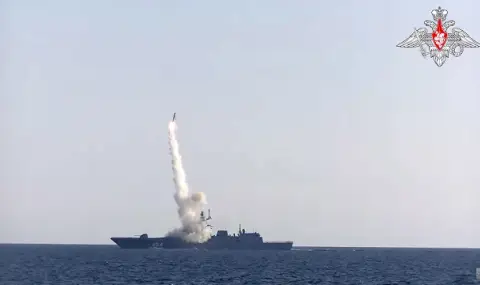The United States is trying to get Russia and Ukraine to stop fighting in the Black Sea, a key trade route for Russian and Ukrainian food exports. Why is the region so important to both countries, but also to the world?
This week, the United States held talks first with Russia and then with Ukraine in an attempt to end the fighting in the Black Sea, a key trade route for food exports. On Tuesday, the White House said the two sides had agreed to a ceasefire in the body of water, which would allow sea traffic to resume. Ukrainian President Volodymyr Zelensky announced that the ceasefire in the Black Sea would begin immediately. However, the Kremlin has demanded that certain conditions be met before that happens, including a partial lifting of sanctions on Russian companies and banks.
A similar truce was in place between 2022 and 2023, but it was violated by Russia. Vladimir Putin then walked away from the agreement because Ukraine's Western allies refused to return the Russian Agricultural Bank to the SWIFT money transfer system.
The Black Sea is a key trade corridor for Ukraine and Russia
Although there seems to be a desire for a truce in the Black Sea, analysts believe that it is unlikely to happen soon. Alexandra Filipenko, an independent researcher from Lithuania, calls the agreement "the biggest of the small steps" discussed in the negotiations. She believes this will reduce the risk of escalation, which is unlikely to be beneficial for either side of the conflict or the rest of the world.
For Russia, the Black Sea is a key trade corridor for grain supplies from the southern part of the country. Before the start of the full-scale war in 2021-2022, 86% of grain shipments passed through ports in the Azov and Black Seas, Forbes reports. Ukraine is one of the world's largest grain exporters, with most of it going to the Middle East, North Africa, and South and Southeast Asia. Stability in the Black Sea is of key importance to Kiev's economy.
What is the situation in the Black Sea right now?
According to Ukrainian President Volodymyr Zelensky, Ukraine currently controls the Black Sea. “The Russians have not controlled the Black Sea corridor for a long time. We are fighting for it because it is a step towards ending the war,” Zelensky said.
Ukrainian political scientist Oleksandr Palyi told DW that in the last year Russia has been pushed back to the eastern part of the Black Sea and has not been able to carry out large-scale attacks in the region. According to Palyi, Ukraine has achieved this success with the help of drones. As a result, grain trade is currently moving largely as before the war. A new deal for the Black Sea would only benefit Russia, Palyi believes.
"Ukraine can attack Russian ships exporting oil or other goods at any time. But Ukraine takes into account the impact this has on the environment, as well as the positions of Turkey and the United States, which are also important. That's why Kiev is being careful," the political scientist believes.
Russia's influence in the Black Sea is growing
Russia's presence in the Black Sea is crucial not only for trade but also for the country's security, as the Kremlin has repeatedly emphasized. According to international law, only 10% of the Black Sea coast belongs to Russia. However, thanks to its growing influence in the region, Moscow effectively controls about a third of the coast.
The Russian military presence in Crimea, which was illegally annexed in 2014, as well as in the unrecognized republic of Abkhazia in the South Caucasus, makes this possible. For the Kremlin, its military presence in Abkhazia is key to securing the country's southern borders.
Ukrainian President Volodymyr Zelensky has warned that lifting Russian sanctions would be a "disaster for diplomacy." Photo: Aurelien Morissard/AP Photo/picture alliance
The Russian president appears to be looking to expand Moscow's presence in the Black Sea even further. Now he is threatening to seize the Ukrainian port city of Odessa if Ukraine refuses to recognize its occupied and illegally annexed territories.
Zelensky: Russia is deliberately stalling negotiations
Russian Foreign Minister Sergei Lavrov said this week that the initiative for a ceasefire in the Black Sea should build on a previous such deal, but Russian interests must also be protected. In an apparent reference to the Kremlin's demands, the White House said the US would "help restore Russia's access to the global market for agricultural and fertilizer exports, reduce marine insurance costs, and improve access to ports and payment systems for such transactions."
On Thursday, after meeting 30 EU and NATO leaders in Paris, Zelensky said lifting Russian sanctions "would be a disaster for diplomacy." "They are dragging out negotiations and trying to drag the United States into endless, meaningless discussions about fake 'conditions' just to buy time and then try to grab more land."
Experts believe that a ceasefire agreement in the Black Sea would cost Russia nothing but would allow it to reap big benefits. The Kremlin's terms show that it is seeking to get as much as possible while making minimal concessions.
